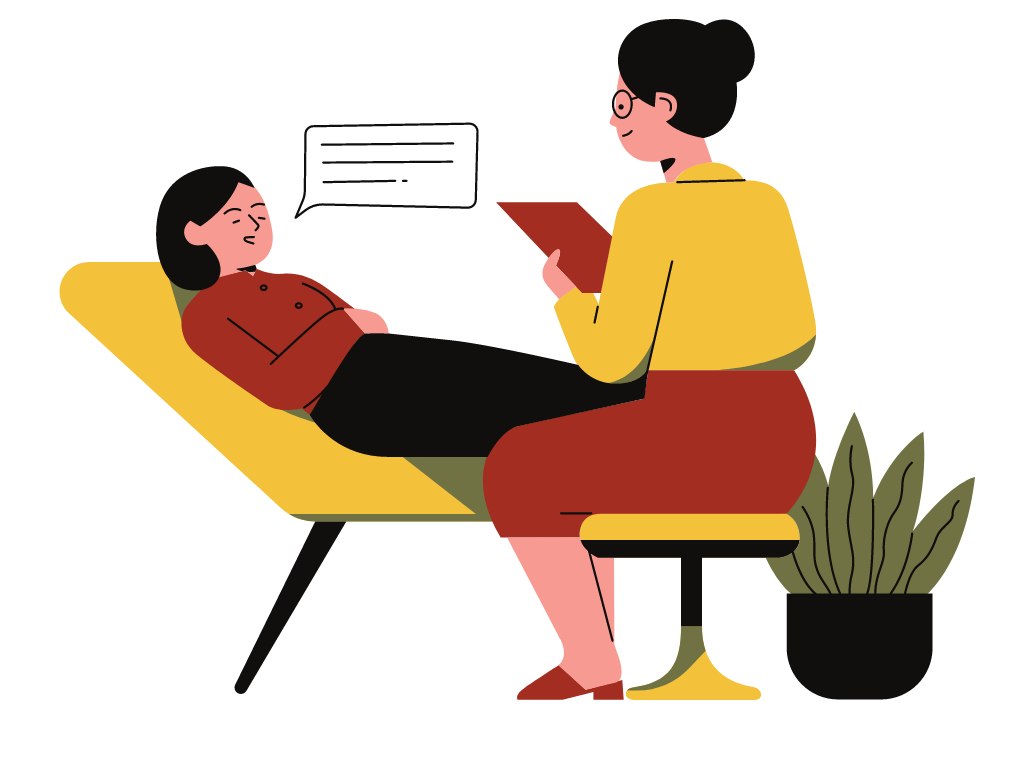
Anxiety Therapy

Counseling Help for Anxiety
Maria Droste Counseling Center in Denver, CO, offers in-person and online anxiety therapy, regardless of your ability to pay.
What is anxiety?
Not everyone realizes this, but anxiety affects the majority of the population at some point in their lives. Talking with a counselor about anxiety issues is a healthy choice that more people should consider. This is especially true as few understand what anxiety is and how it affects their lives.
Describing anxiety
Anxiety varies greatly in the types of symptoms it manifests and has subgroups such as Panic Disorder, Generalized Anxiety Disorder, and Post-Traumatic Stress Disorder (PTSD).
The feeling of anxiety can best be described as a sense of worry, or fear that is not related to an actual, measurable threat to one’s safety or security. In other words, individuals with anxiety often feel a sense of dread, even when they are unable to describe the specific threat.

We offer affordable online and in-person counseling for anxiety.
Contact us today if you’re looking for help coping with anxiety. Our team will match you with a therapist that is right for you. Let us know if you have any specific preferences, including gender, payment type, approach to services, or other criteria.
Anxiety is not the same as fear
It is important to distinguish anxiety from fear. Compared to anxiety, fear is a healthy, adaptive emotion that tells us when there is an immediate threat. Fear tells us we are in danger and activates our brains to kick into “fight or flight” mode to save ourselves. On the contrary, anxiety is not caused by any immediate threat.
| Triggers “fight or flight” mode | Facing immediate threat | Intense emotions fade when threats are cleared | Should consider therapy or anxiety medication | |
| Fear | √ | √ | √ | |
| Anxiety | √ | √ |
Subgroups and Symptoms of Anxiety
- Generalized Anxiety Disorder (GAD) is characterized by persistent and excessive worry about different things. Symptoms can often include excessive worry, difficulty sleeping and concentrating, muscle aches and tension, headaches, and nausea.
- Panic Disorder causes individuals to experience periods of intense panic, chest pains, difficulty breathing, sweating, and the feeling that they are “going crazy” or dying. These episodes often only last seconds or minutes, but they can be extremely frightening and debilitating to the sufferer, causing them to avoid places or situations they fear may trigger panic.
- Post-Traumatic Stress Disorder (PTSD) often occurs after an individual has experienced or witnessed a significant trauma. People with PTSD experience a blunting of emotion altogether and a general withdrawal from people or activities they previously enjoyed.
- Obsessive-Compulsive Disorder (OCD) makes a person feel the need to perform certain routines repeatedly (called “compulsions”) or has certain thoughts repeatedly (called “obsessions”).
- Social Phobia (Social Anxiety Disorder) is an intense, persistent fear of being watched and judged by others. For people with social anxiety disorder, everyday social interactions cause irrational anxiety, fear, self-consciousness and embarrassment.
Types of therapy for anxiety
Maria Droste Counseling Center offers several effective treatments for anxiety. Some of these treatments include Cognitive Behavioral Therapy (CBT), Psychodynamic Therapy, and Solution-Focused Therapy, though many approaches can be effective in treating anxiety.
During sessions, a therapist can use a variety approaches to help a client with anxiety. If there is a style of therapy you’re interested in, tell our staff during your intake conversation. With our experienced team of therapists, our staff can find a counselor versed in the modality you’re seeking.
In short, remember that anxiety can be treated. Although anxiety disorder can be extremely debilitating, there are many effective treatments reduce symptom severity and duration.
Feeling resistant to getting help?
We know that even though a person may want to seek counseling help, they may also feel resistant to it. With this in mind, our goal is to help you address those barriers that can stop you from receiving the help you need. The following are a few reasons we’ve heard a person may not seek counseling. If you have other concerns, just ask us. Our conversations are always confidential and your privacy will be respected.
Concerned about the cost?
If you’re concerned about cost, remember that Maria Droste offers services, regardless of your ability to pay. There are many options to help you get the support you need.
- Medicare
- Medicaid
- Sliding Scale Fee
- Private insurance
- Pro Bono Services
- Crime Victim’s Compensation
- Survivor’s Mental Health Program (SMHP)
Worried about what people will think?
The truth is, everyone could benefit from counseling at some point in their lives. Receiving emotional support and help is a natural and very healthy step to take. All the Maria Droste staff and therapists believe in the value of counseling for every person. Rest assured, we offer confidential services with compassionate, non-judgmental therapists to help clients feel safe and supported.
“Will I be in therapy forever?”
Some people are hesitant to start therapy fearing they’ll “be in therapy forever.” A therapist’s goal is never to keep a client dependent upon service. A therapy plan works to support a client whilst helping them develop their own coping skills to live an empowered life with joy and meaning.
Furthermore, it’s important to know that even a few sessions can help you gain powerful insight and tools to help you. There is something to gain in therapy for however long you choose to see a counselor.
In terms of the number of visits, while there isn’t a set number of recommended sessions, the total number of sessions needed for anxiety therapy can depend upon several factors. These factors include the duration and severity of the distressing symptoms. Your therapist will be able to determine the type and number of sessions you need once they learn about your symptoms.
Self-help: what to do when anxiety attacks
It’s also important to know, you can be your own first line of defense when anxiety attacks. To begin the process, the first step is recognizing when when you’re having an anxiety attack. When you start to feel dread, take a deep breath.
Now, try to say out loud to yourself, “I’m having an anxiety attack.” If you can remind yourself that the episode is treatable, will eventually pass and that you’ll feel better soon – you’re taking very important steps to calming an anxiety attack.
Finally, once you know you’re having an anxiety attack, you can either focus on a nearby object to observe all its details, or go to your “happy place.” Thinking of a relaxing place or time, be it a happy memory, (real or imaginary) or a soothing location – like a favorite vacation spot – can help to calm the nerves. In other cases, you can simply close your eyes and practice mindfulness.
Should your symptoms come back and become overwhelming and more severe, please seek help from an anxiety therapist. Anxiety therapy can provide individuals with skills and tools to not only alleviate symptoms, but to prevent them from recurring.
You can get help
The Maria Droste Counseling Center has therapists trained in helping people suffering from anxiety. Whether you find your anxiety has been a longtime struggle or that it is a recent development, there is hope. Contact us today. We’ll find the counselor right for you to begin your healing journey.

We offer affordable online and in-person counseling for anxiety.
Contact us today if you’re looking for help coping with anxiety. Our team will match you with a therapist that is right for you. Let us know if you have any specific preferences, including gender, payment type, approach to services, or other criteria.
READ MORE
